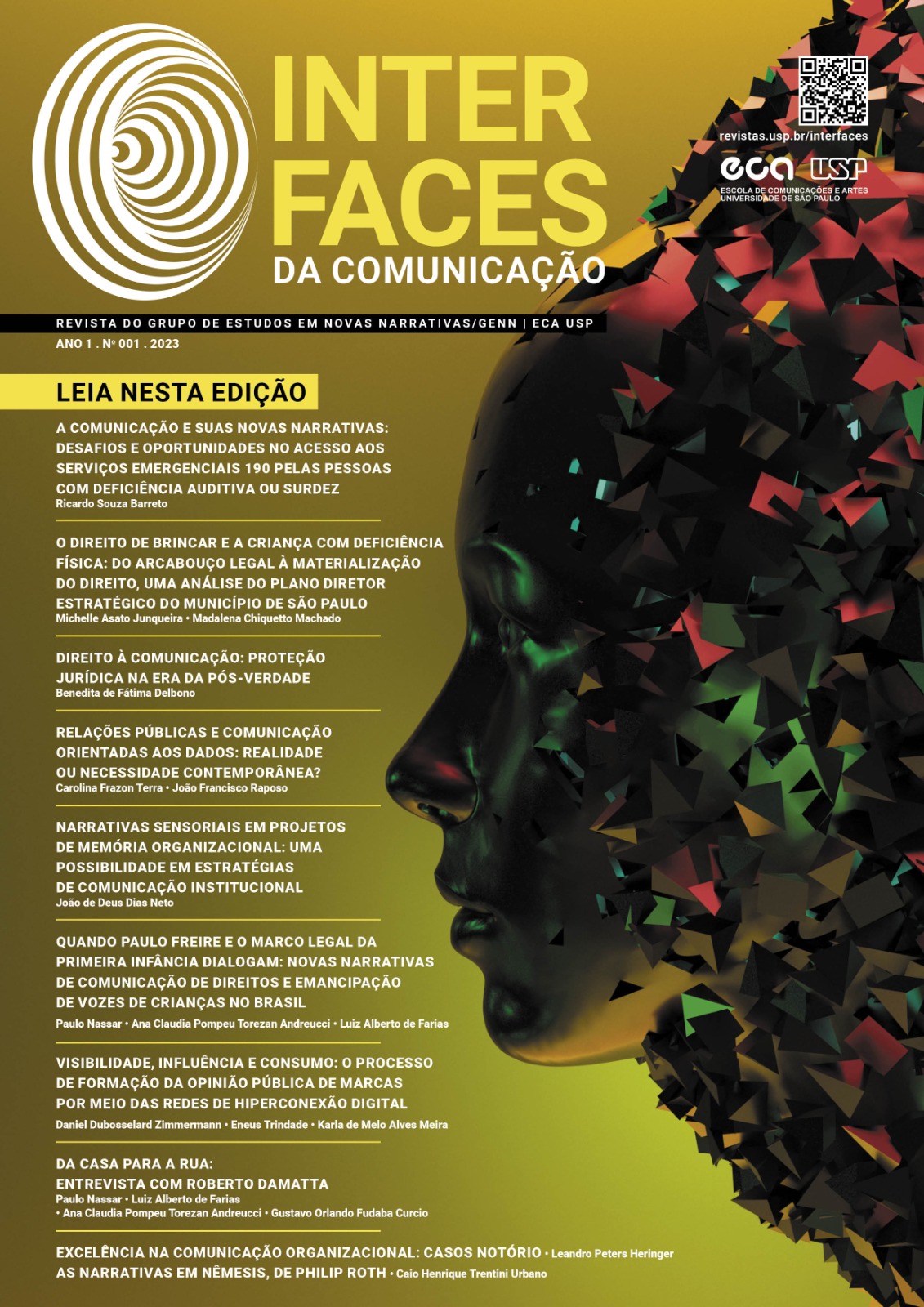Direito à Comunicação: Proteção Jurídica na Era da Pós-Verdade
DOI:
https://doi.org/10.11606/issn.2965-7474.v1i1p1-15Keywords:
Pós-verdade, Liberdade de Expressão, Direito à Informação, Direito, ComunicaçãoAbstract
The premise of this article is to establish the interface between communication and law, with emphasis on legal protection in the post-truth era. The constitutional rights of freedom of expression and information were brought as vital elements to contemporary ethical reflections, whose violation calls for the appreciation of legal aspects. The hypotheses of excess in the public sphere and lack in the private sphere were brought up, with emphasis on digital media. The reflection on ethics and post-truth is present in the face of the information age shrouded by the disinformation that practices sensationalism and the convenient selection of information. And, yet, how the current media discourse is marked by digital social movements and how the impacts resulting from technology strengthen social movements and transform personal values, habits and behaviors. The Klara Castanho case comes to illustrate the legal consequences of the lack of private sphere configured by secrecy and secrecy of justice and, also, how the celebrity industry, enhanced by digital media, acts with total disregard for ethics and intimacy. The methodology used was bibliographical and documental research.
Downloads
Published
Versions
- 2023-05-03 (2)
- 2023-05-03 (1)
Issue
Section
License
Copyright (c) 2023 Interface Communication Review

This work is licensed under a Creative Commons Attribution-NonCommercial-ShareAlike 4.0 International License.



